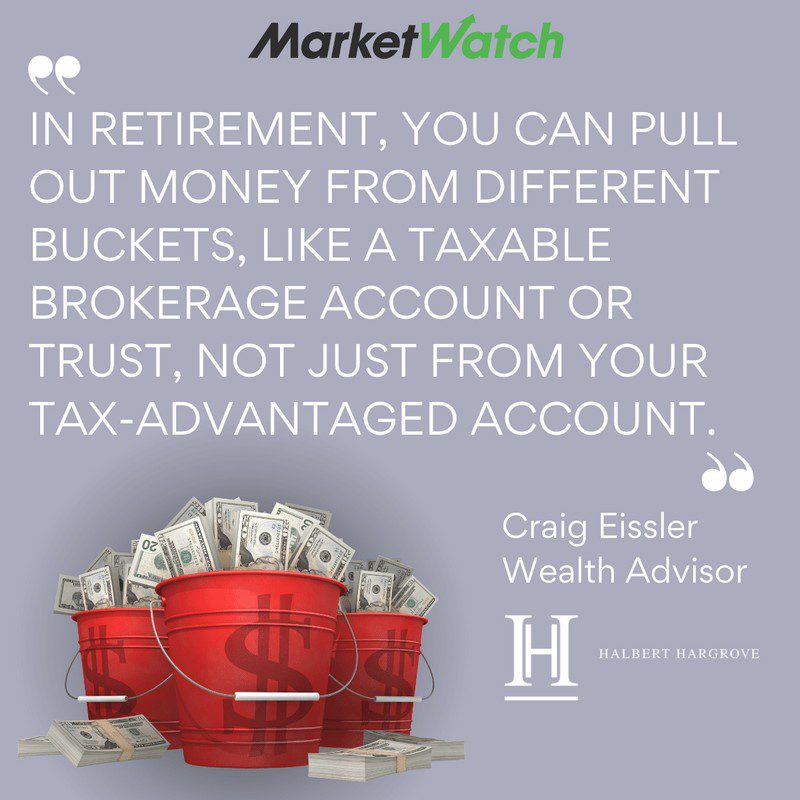By Morey Stettner, MarketWatch featuring Craig Eissler, CFP®, CIMA®, AIF®, Wealth Advisor
With steeper tax rates expected in coming decades, traditional advice deserves another look
Some money management truths are self-evident: Always set aside enough cash for emergencies. Diversify your portfolio. And maximize your contributions to tax-advantaged accounts such as a 401(k) or IRA.
That last one is open to debate. Even if you like the idea of cutting this year’s tax bill by funding your 401(k), you will eventually owe the federal government some money — and probably more than you expect.
“There’s a general consensus that tax rates will not be going down in the future,” said Craig Eissler, a Houston-based certified financial planner. Nevertheless, he urges clients in a high tax-bracket to reduce their current taxable income by maximizing tax-deferred contributions.
“Then in retirement, you can pull out money from different buckets, like a taxable brokerage account or trust, not just from your tax-advantaged account,” he said.
Experts warn that tax rates will need to increase at some point to plug the federal budget deficit and fund Medicare and Social Security. Pre-retirees who diligently max out on their 401(k) contributions every year will probably face higher ordinary income tax rates in the future.
The likelihood of steeper tax rates in the coming decades might lead you to rethink traditional advice to stash every dollar you can into tax-deferred vehicles. While it’s a great deal if your employer matches your contributions, there are some situations where it’s actually prudent not to max out your 401(k).
For example, some pre-retirees can come out ahead by buying more equities in their taxable brokerage account rather than maximizing their annual 401(k) and IRA contributions. Many variables come into play, such as their current tax bracket and investment savvy.
“For clients in their late 40s and 50s, we sometimes limit the amount they put into their 401(k),” said JR Gondeck, an adviser in Boca Raton, Fla. “Instead, we shift some of that money into a [stock] index fund within a taxable brokerage account. A lot of people are surprised when we do that. It’s counterintuitive.”


